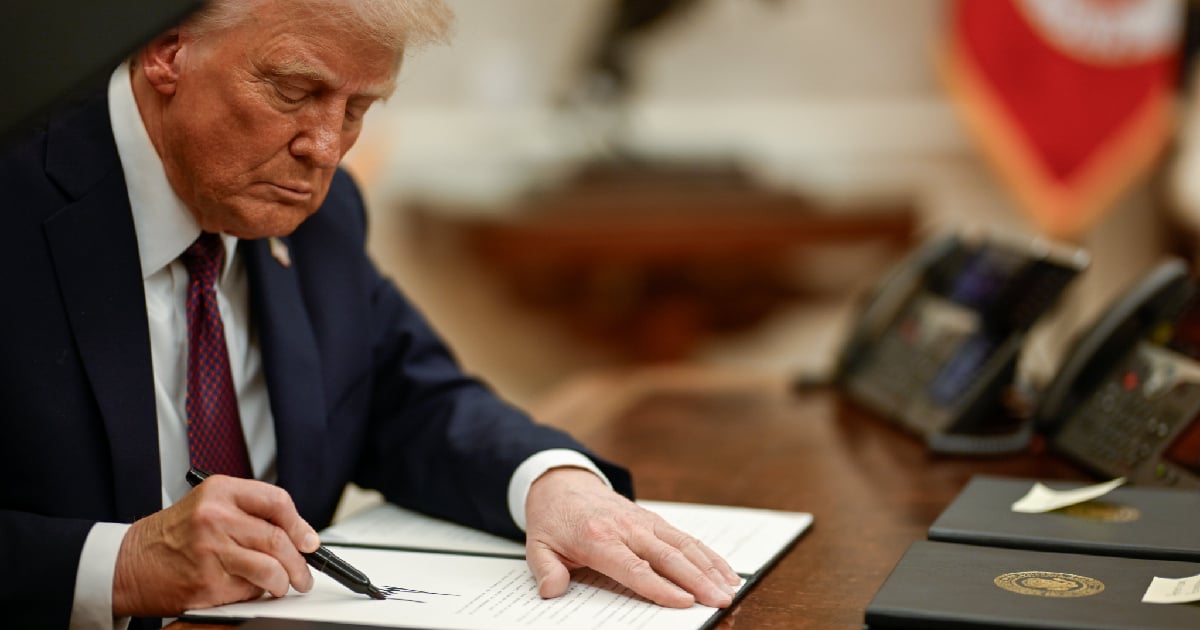
Related videos:
The attorneys general of 18 states filed a lawsuit on Tuesday to halt the executive order by United States President, Donald Trump, which aims to end birthright citizenship, a policy that allows children born in the country to be citizens, regardless of their parents' immigration status.
On the night of Monday, just hours after taking office as the 47th president of the U.S., Trump signed an executive order to repeal this policy, which is included in the 14th Amendment of the Constitution and has been in effect for decades, fulfilling a previous intention during his re-election campaign, according to a report by the news agency AP.
The measure signed by the president questions whether the 14th Amendment automatically grants citizenship to anyone born in the United States.
The states of New Jersey, California, Massachusetts, Colorado, Connecticut, Delaware, Hawaii, Maine, Maryland, Michigan, Minnesota, Nevada, New Mexico, New York, North Carolina, Rhode Island, Vermont, and Wisconsin, along with the District of Columbia and San Francisco, filed a lawsuit in federal court to block the presidential order.
The document requests the court to declare it unconstitutional.
Birthright citizenship ensures that anyone born in the U.S. is a citizen, regardless of their parents' immigration status.
The 14th Amendment, which emerged after the Civil War and was ratified in 1868, states that "all persons born or naturalized in the United States and subject to its jurisdiction are citizens of the United States and of the state in which they reside."
Under this regulation, for example, individuals who are in the country on a tourist visa or other types of visas, or who are staying illegally, can become parents of a citizen if their baby is born in the U.S., explained AP.
Trump, his cabinet, and allies have questioned the interpretation of the constitutional amendment and believe that stricter rules are necessary to obtain citizenship.
The White House has not explained how the executive order will be implemented, which will likely face significant legal challenges.
After the president signed the order, the chapters of the American Civil Liberties Union (ACLU) in New Hampshire, Maine, and Massachusetts, along with other immigrant rights advocacy groups, filed a lawsuit to stop it in the federal court of New Hampshire.
The elimination of birthright citizenship has been a recurring demand from conservative sectors in the United States. During his first term (2017-2021), Trump threatened to take similar action but did not follow through.
Frequently asked questions about birthright citizenship and Donald Trump's immigration policies
What is birthright citizenship in the United States?
Birthright citizenship is a principle established by the 14th Amendment of the United States Constitution that grants automatic citizenship to anyone born on U.S. soil, regardless of their parents' immigration status. This provision has been criticized by Donald Trump, who, prior to assuming his second presidential term, expressed his intention to abolish it through an executive action.
Is it possible to revoke birthright citizenship in the United States with an executive order?
It is not possible to eliminate birthright citizenship through an executive order, as it is guaranteed by the 14th Amendment of the U.S. Constitution. Any attempt to change this provision requires a constitutional amendment, which is a complex process that involves the approval of two-thirds of both chambers of Congress and ratification by three-fourths of the states. Legal experts deem Trump's proposal unconstitutional.
What impact would the elimination of birthright citizenship have in the United States?
The elimination of birthright citizenship would have a devastating impact on millions of immigrant families and the U.S. economy. New classes of "stateless" individuals would be created, with children born in the U.S. lacking nationality and access to basic rights, affecting mixed-status families and further complicating the immigration system.
Which countries grant citizenship by birthright?
More than 30 countries grant citizenship by right of birth, including the United States, Canada, Brazil, and several Latin American countries. This provision, known as "jus soli" or right of the soil, is common in nations with legal systems derived from British common law or that seek to attract immigrants to populate their territories.
What are the reactions to Trump's proposal to eliminate birthright citizenship?
Trump's proposal has generated mixed reactions. While Democrats and human rights organizations deem it unconstitutional and an attack on civil rights, the conservative base and Trump's supporters back it, viewing it as a necessary step to control immigration.
Filed under: